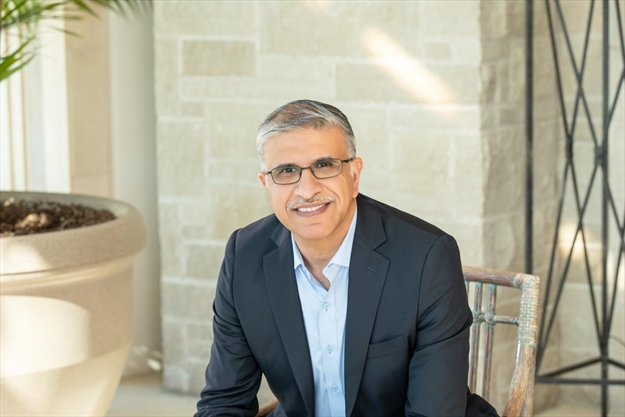The new year will bring a shifting of gears for Seetarama (Swamy) Kotagiri, who will take over the helm of Ontario-based auto parts giant Magna from long-time CEO Don Walker, who announced his retirement Tuesday.
Kotagiri has been with the company for more than two decades, most recently as president. An engineer who thrives on efficiency, he took a few minutes out of his busy schedule to talk about the COVID-19 pandemic and Magna’s way forward in a swiftly changing industry.
Q: This is a pretty interesting time for anyone to be making a big career change, let alone becoming a CEO. What’s that like for you?

SK: I’ve been with Magna for over 21 years and 25 years in the industry. So, I would like to see this as a smooth transition. I’ve been working with Don (Walker) for the last eight years very closely, so I don’t see this as a big change.
I’m sure there are things to learn, but I know the team, all my peers. We have been cohesively working together for some time so I don’t see that as a big challenge. It’s definitely exciting.
Q: You were made president of Magna not that long ago. Has that job helped prepare you for this new role?
SK: It definitely helped connect the dots. Over the last eight months we’ve been working together, I had a chance to get a little bit more exposure than what I already had.
This is a comprehensive process that’s been ongoing for over three to five years. So it was a hands-on coaching and learning experience, and the last step was the role of president.
Q: How has the pandemic affected your day to day, both personally but also professionally?
SK: Working from home, the day and night seem to all blend together. You have to make a concerted effort to put in the physical activity.
We’ve definitely learned some things that we didn’t think were possible before, but missed a few things, you know, just getting up and walking up to a desk and the human interaction.
I think we had more limitations in our mind of what could be done remotely.
Q: And how has the pandemic affected Magna?
SK: Just the whole industry … We’ve kind of had to come to an abrupt halt and do a complete restart by region from China and then Europe and the U.S., but we are really proud of how the team came together addressing it. Not only just doing what we had to do at Magna, but contributing to the industry startup as a whole.
The team really came together in a crisis. But it’s good to say we never had to stop an OEM (original equipment manufacturer).
Q: How do you plan on making the company stronger and moving forward after the difficulties caused by the pandemic?
SK: I think the reason why we were able to react quickly and in a fast way is how we are structured, very agile, very decentralized. That helps. We always had a plan, not for COVID, but we have gone through the 2008-09 crisis.
We’re looking at every possible way to see what did we learn, and can we improve efficiency going forward.
Q: The world of executives is pretty white. What’s it been like for you to be a visible minority at the top?
SK: I’ve never thought about it until you brought it up. I’ve been fortunate enough. One of the reasons why I came to Magna 21 years ago was the unique culture.
If you’re talented and you have the skills and if you want to take accountability and responsibility, you get to do what you want to do. That’s how fair enterprise is defined and, I guess, since you mention it now, I’m a good example of that.
Q: Are you going to continue on with Don Walker’s strategies for Magna? Or do you have any big changes in mind?
SK: Magna has been evolving for 60 years with the changing industry and it has done really well. As the industry evolves and changes, we have to be able to evolve and change along with it.
I definitely am not going to look for a change for the sake of change.
This interview has been lightly edited and condensed for clarity.
Rosa Saba is a Calgary-based business reporter for the Star. Follow her on Twitter:
